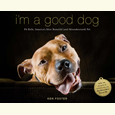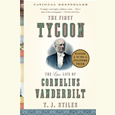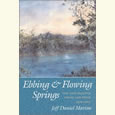Great Self-Doubt—and Intense Dedication
Sarah Shun-lien Bynum talks with Chapter 16 about teaching and writing
In Sarah Shun-lien Bynum’s charming collection of linked stories, Ms. Hempel Chronicles, a young seventh-grade English teacher, Beatrice Hempel, offers lovingly detailed observations of a middle-school ecosystem—observations that are immediately resonant and often suffused with wry humor, both for readers who have taught and those who have done time in those locker-lined halls only as students. Teaching, Ms. Hempel comes to understand, is “a form of extortion; you were forever trying to extract from your students something they didn’t want to part with: their attention, their labor, their trust.” But her insight can also be quite sobering:
That is what is marvelous about school, she realized: when you are in school, your talents are without number, and your promise is boundless. You ace a math test: you will one day work for NASA. … You are everything at once: actor, astronomer, gymnast, star. But at a certain point, you begin to feel your talents dropping away, like feathers from a molting bird. … Until one day you realize that you cannot think of a single thing you are wonderful at.
And yet this book is in no way a bleak commentary on the passing of youth. The warmth Ms. Hempel feels toward her young charges is infectious, and her reflections on their various idiosyncrasies, the first tender blossoming of their adult identities, are something to be savored. Critics applauded Ms. Hempel Chronicles for extracting the wonder and sparkle from the most ordinary of lives, of subjects: “Though there isn’t much in the way of plot,” wrote a reviewer for Publisher’s Weekly, “Bynum’s sympathy for her protagonist runs deep, and even the slightest of events comes across as achingly real and, sometimes, even profound. Bynum writes with great acuity, and the emotional undercurrents in this sharp take on coming-of-age and growing up will move readers in unexpected ways.”
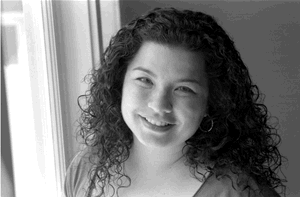 What makes Bynum’s work in Ms. Hempel Chronicles even more impressive is the marked contrast between it and her first novel, Madeleine is Sleeping, which drew more from the well of fairy tale and fable than everyday contemporary life. Both books have helped established Bynum as a significant new voice in American fiction: Madeleine was a finalist for the National Book Award, Ms. Hempel Chronicles was a finalist for the Pen/Faulkner Award for Fiction, and Bynum herself landed on The New Yorker’s ballyhooed “20 under 40” list of “young writers who capture the inventiveness and the vitality of contemporary American fiction.” Taken together, the books suggest an author of great range and inventiveness who stands to surprise and delight readers with whatever she writes.
What makes Bynum’s work in Ms. Hempel Chronicles even more impressive is the marked contrast between it and her first novel, Madeleine is Sleeping, which drew more from the well of fairy tale and fable than everyday contemporary life. Both books have helped established Bynum as a significant new voice in American fiction: Madeleine was a finalist for the National Book Award, Ms. Hempel Chronicles was a finalist for the Pen/Faulkner Award for Fiction, and Bynum herself landed on The New Yorker’s ballyhooed “20 under 40” list of “young writers who capture the inventiveness and the vitality of contemporary American fiction.” Taken together, the books suggest an author of great range and inventiveness who stands to surprise and delight readers with whatever she writes.
Bynum answered questions from Chapter 16 via email in advance of her reading at Vanderbilt University in Nashville on November 3.
Chapter 16: Madeiline is Sleeping is steeped in magical realism; Ms. Hempel Chronicles holds fast to realism; and “The Erlking,” a recent story published in The New Yorker, returns to magical territory. How easy is it for you to slip back and forth between these narrative poles? Do you ever work simultaneously on fairy tale-esque stories and conventionally realist narratives?
Bynum: Oh yes, absolutely—I wrote and revised several of the Ms. Hempel stories while I was still writing the second half of Madeleine Is Sleeping. Maybe I find myself slipping back and forth between the fantastic and real because I don’t think of them as opposite poles? I wanted the family dynamics in Madeleine to feel as real as those in Ms. Hempel Chronicles, and I hoped that an oddball seventh-grade student giving Ms. Hempel a rat as an end-of-year present would feel as unexpected and marvelous as Mme. Cochon sprouting two pairs of wings. Sometimes it was a relief to write about Ms. Hempel after being immersed in Madeleine’s world, but I chalk this up to the fact that I was using more contemporary language with Ms. Hempel, dealing with fewer formal constraints, and drawing upon autobiographical rather than historical detail.
One of the things I love about living in Los Angeles is that I need both modes to write about the experience of being here. “The Erlking” does return to magical territory in a sense, but it also relies upon an almost documentary-like realism: this is a place where you really will see John C. Reilly strolling through the Waldorf School Elves’ Faire with a guitar on his back!
Chapter 16: How has motherhood affected your writing life? Your writing?
Bynum: I have to confess that I usually blame motherhood for the erratic nature of my writing life, but I’m beginning to realize that this is unfair. I tend to forget that just a few months after my daughter was born, I started my first university teaching job, and my job required that I commute 115 miles each way. So now, in retrospect, I don’t think it was just motherhood that kept me from maintaining a regular writing practice. There were other forces at work, too.
But motherhood has been the most wonderful distraction from writing, and I don’t regret at all the time I’ve taken away from writing in order to be with my daughter. And inevitably, my work is much more interested in the pleasures and terrors of parenting than it was before. I’ve always liked writing about families, but before I tended to take the kids’ perspective, and now I can’t help but think as the parent.
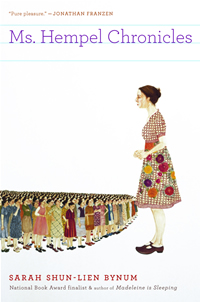 Also, it’s been so much fun to revisit my favorite books from when I was a kid. I just started reading the Ramona books with my daughter and I can’t get over Beverly Cleary’s delightful prose style and her insight into how children think. Rereading her now, I realize that she must be the original source of words I still use all the time, like “cross” and “shabby.” And she has such a great way with verbs: a little boy “scrubbing away” with a blue crayon to make a sky, a dog “whiffling” around a trashcan.
Also, it’s been so much fun to revisit my favorite books from when I was a kid. I just started reading the Ramona books with my daughter and I can’t get over Beverly Cleary’s delightful prose style and her insight into how children think. Rereading her now, I realize that she must be the original source of words I still use all the time, like “cross” and “shabby.” And she has such a great way with verbs: a little boy “scrubbing away” with a blue crayon to make a sky, a dog “whiffling” around a trashcan.
Chapter 16: In an interview with The New Yorker, you mentioned that writing and doubt have always gone hand in hand for you. Can you elaborate a bit on that point? How have you managed to keep doubt under your thumb long enough to press forward?
Bynum: Usually it’s sheer necessity that keeps me pressing forward. I don’t like the pressure created by deadlines and contracts, but it has proven useful. The shame of missing a deadline or failing to fulfill a commitment is a powerful incentive for me—so social shame is my best defense against the paralysis of artistic doubt.
Chapter 16: In Ms. Hempel Chronicles, I love your exquisite detailing of the small ways in which the students rub off on Ms. Hempel, for better and worse (the slang, the blue nail polish, the spelling errors!), and she on them. I cringe a little at this question but I simply cannot resist asking it: in writing the book, how closely did you cleave to your own experience as a seventh-grade teacher? (Did you, too, answer anonymous questions about semen and oral sex before a room full of kids?)
Bynum: Oh, I shamelessly mined my own teaching experiences for much of the details, and even the events, in Ms. Hempel Chronicles. I began writing the stories as a way of trying to sort through and make sense of those years. When I left teaching, I felt both enormous relief and a very sharp sense of loss, and though the book isn’t in any way an accurate or faithful account of my real-life experiences, it came out of a prolonged attempt to understand why I felt that way.
Chapter 16: I was struck by how hard Ms. Hempel works at her job, how seriously she takes it, and yet how repeatedly she doubts her performance. “It was a terrible responsibility: to render, in a recognizable way, something as ineffable as another human being, particularly a young one,” she reflects upon having to prepare “anecdotals” for each of her students. This pressure, this level of devotion, this perennial second-guessing—are they endemic to English teachers particularly?
Bynum: I think this might be more endemic to young or inexperienced teachers than to English teachers in particular; my sense is that you’ll find some degree of doubt (paired with intense dedication) in most new teachers, no matter what subject they teach. It’s tempting for me to surmise that English teachers, many of whom probably have been serious book-lovers for much of their lives, tend to be more introspective (and as a result, perhaps more angst-ridden) than others. But even as I write this I am already thinking of several examples that disprove my theory!
Sarah Shun-lien Bynum will read from her work at Vanderbilt University in Nashville on November 3 at 7 p.m. in Buttrick Hall, Room 101. The event is free and open to the public.

